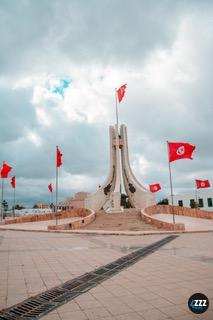
On the 25th of July, Tunisia’s populist president Qais Saied dismissed the country’s prime minister and suspended parliament following widespread protests against the government’s poor response to the COVID-19 pandemic. Many in the West have been quick to brand the move a coup, casting doubt on the future of the Arab Spring’s one democratic success story. Tom spoke to Dr William Lawrence, non-resident scholar at the Middle East Institute and former United States diplomat in Tunisia, about the evolving political situation in the country.
On the 25th of July, Tunisia’s populist president Qais Saied (Kai-ees Sai-ed) dismissed the country’s prime minister and suspended parliament following widespread protests against the government’s poor response to the COVID-19 pandemic. Many in the West have been quick to brand the move a coup, casting doubt on the future of the Arab Spring’s one democratic success story. Tom spoke to Dr William Lawrence, non-resident scholar at the Middle East Institute and former United States diplomat in Tunisia, and started by asking him about what the political situation was like in Tunisia prior to the pandemic.
That was Thomas Hawker speaking to Dr William Lawrence, non-resident scholar at the Middle East Institute and former United States diplomat in Tunisia.